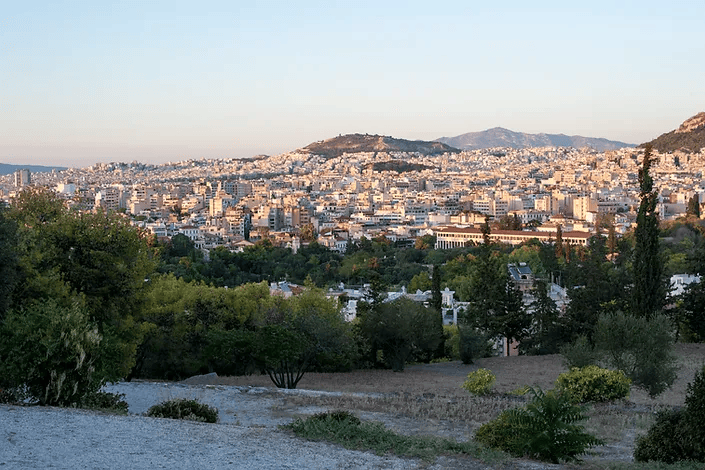Greece remains the first place in Europe that many people fleeing persecution land. Demand for our support here is huge. However, with so much else happening, Greece has slipped out of the news cycle more recently.
That’s why we’ve asked Anastasia, an RLS lawyer in Greece, to provide an update on what’s happening here.
You can read her letter below.
Anastasia’s letter
Dear friend,
My name’s Anastasia, I’m a lawyer working for RLS in Athens. I wanted to get in touch to give you an update on the situation for people seeking asylum here.
A lot of voluntary organisations are struggling here as there’s less focus on Greece in the media. This means that it’s becoming harder to find funding. Many of our partner organisations are scaling back or being forced to close their doors.
This is at a time when demand is increasing as arrivals of people seeking safety in Greece have increased.
Shortages in support
People arrive in Greece unfamiliar with the system and face a significant language barrier. Legal support and information are essential. However, there’s a shortage of help available.
This means that people:
- Face the asylum process alone, which can seriously harm their case. For example, someone may have spent a lifetime trying to hide their sexuality to avoid persecution. Without support, they might continue to hide this from the authorities in Greece. This might be central to their case.
- Have no idea how to navigate complex legal processes that they’re confronted with. This includes the process itself, but also understanding when to push back against their unjust treatment.
- May have a vulnerability which means their case should be accelerated and that they need additional support. Without support from social workers and psychologists, this will never be revealed. This can have a dramatic impact on psychological and physical wellbeing.
This means that people with strong asylum claims may be rejected. This leaves people in an incredibly difficult situation and vulnerable to exploitation. If things don’t work at this stage, they may never receive the protection they need.
Bureaucratic and procedural problems
The challenges that people face would be difficult enough in a well-functioning asylum system. However, the people we work with have to overcome a dysfunctional, often arbitrary process.
For example, a recent botched upgrade of the asylum service’s IT system led to all asylum procedures being frozen for weeks. People were arriving and unable to claim asylum because of a technical problem.
This has very real consequences. Anybody without an asylum card is at risk of being indefinitely held in detention, or even illegally deported.
Many people we work with are scared to go outside as a result.
Asylum interviews are also often arranged with almost no notice. This makes it very challenging for people to find legal support.
What we do to support
To help people to overcome these obstacles, we provide:
- Legal information and community engagement: we travel to the places where people need our support and provide information sessions. We also have high quality legal information in multiple languages in audio and text on our website.
- Emergency interview preparation: when people have their asylum interview arranged with no notice, we’ll arrange an emergency appointment to help them to prepare.
- Full legal support: we represent clients through the entire asylum process, from registration of their application and interview, all the way to the courts, where necessary.
- Appealing against injustices: where the authorities violate the fundamental rights of clients, we represent them with complaints to the ombudsman. This can have a dramatic effect on their case and their treatment by the authorities.
This work is essential. With little other support available, without RLS people would be left to fight alone.
Thank you,
Anastasia Matsouka, Lawyer, RLS




